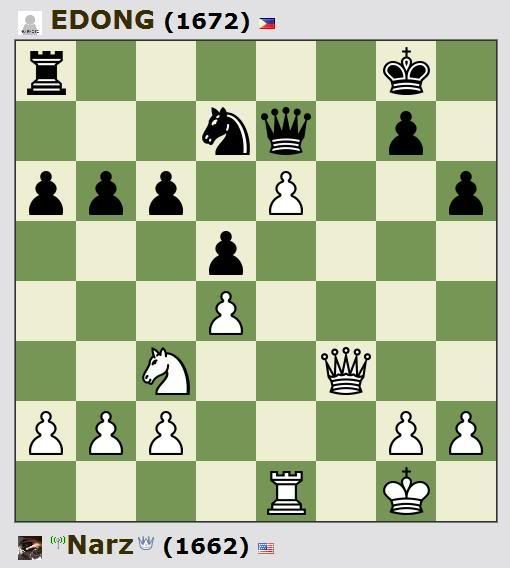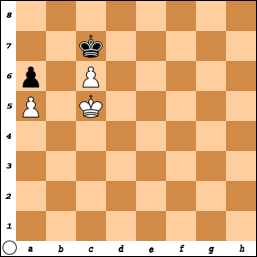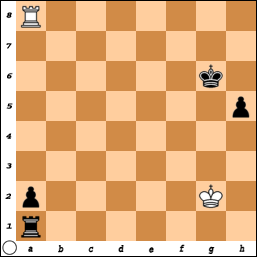That's a great one, Narz. I got the Move right, but for the wrong Reason. So I guess that means that I didn't get The Answer 




Thanks.That's a great one, Narz.

Well it was kind of a trick question, it was more about not making the wrong move & now that you see why it's wrong your brain is more primed to notice that type of attack (both on offense & defense).I got the Move right, but for the wrong Reason. So I guess that means that I didn't get The Answer
According to the chess.com analysis engine it's roughly equal after that point (I didn't play against the odd-beat opening I was facing particularly well) but my opponent made some major blunders & I pulled off the win.Best idea is Qh6 - do we win the endgame after Qxh6 gxh6? probably

Yeah, I always get those mixed up, I was raised (well starting at age 19) on a mismash of Descriptive & Algebraic leaving my chess writing somewhat dyslexic at times.As I am such a nitpicker: bishop can only move to g4, not to g5. And yes, it is not such a good idea...


I sort of follow... but not really. After all, moving that rook is as illegal as moving a rook diagonally, no?

Only against the king.So I guess this is a case where a pinned piece can still control tiles. Interesting
From a blitz game

What's white's best continuation?
Spoiler :
I think that loses to Qxe1.e6xd7 looks like a better move to me. Nxd5! seems like a good waste of a good knight.




I can't see how white can win but since you posted it as a puzzle & with a grin I imagine somehow he/she can.

White to move. How do you assess this situation? Can White win it?

White to move. How do you assess this situation? Can White win it?

